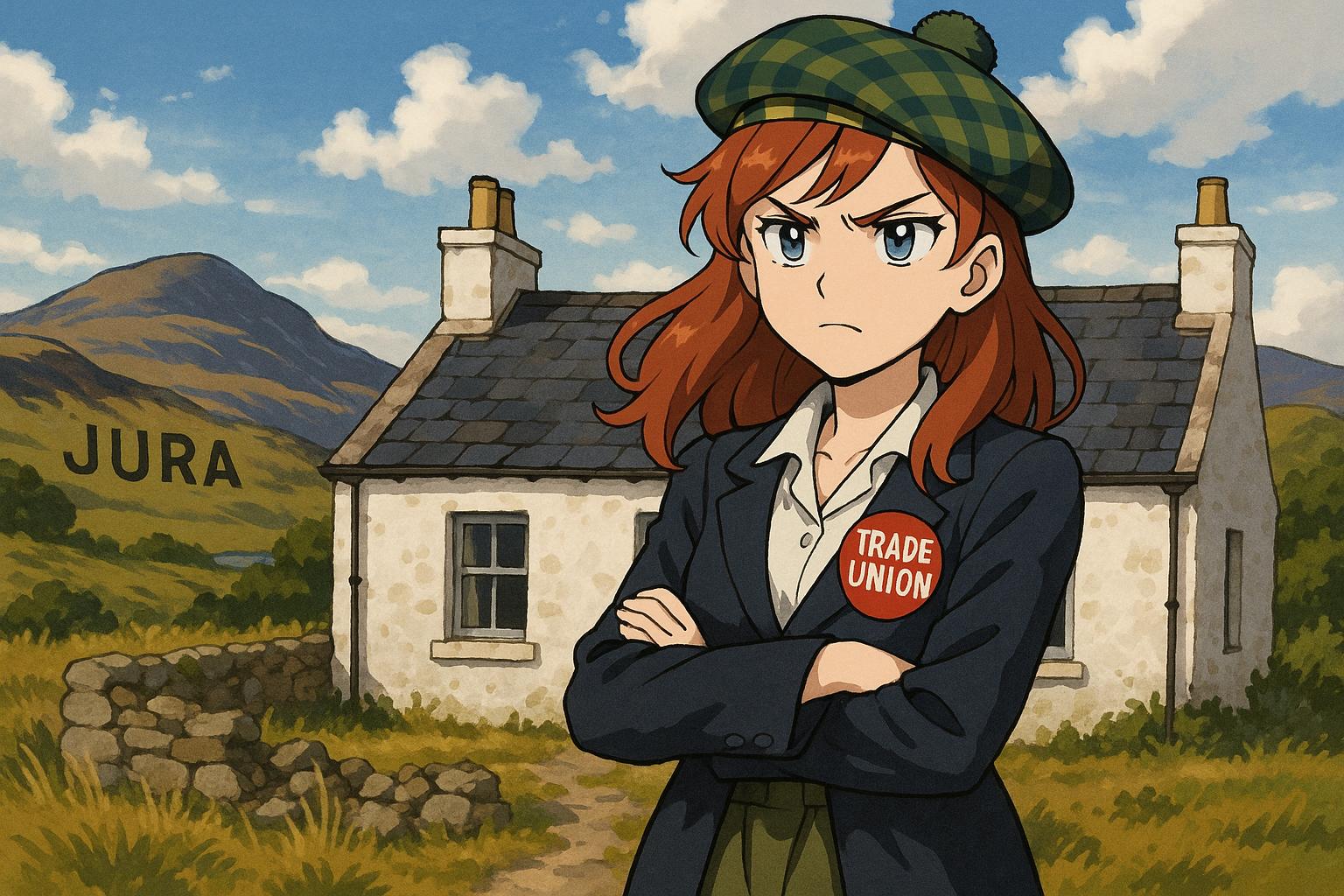In a recent controversy, Roz Foyer, the General Secretary of the Scottish Trades Union Congress (STUC), is facing accusations of hypocrisy concerning her ownership of a holiday cottage valued at approximately £150,000 on the Isle of Jura. This revelation emerges against the backdrop of her vocal criticism of second homes and their detrimental effects on local communities. Her calls for a 300% council tax premium on second homes and empty properties underscore her commitment to tackling the pressing issues of homelessness and community stability in Scotland.
Foyer has framed the current climate as particularly dire, stating that Scotland is grappling with a triple crisis: housing, public sector funding, and a cost-of-living emergency. “Second homes and short-term lets can have significantly negative impacts on communities, exacerbating these crises as well as undermining the local economy,” she remarked, highlighting the need for policy action to alleviate these stresses faced by working people.
Criticism has come swiftly from opponents, notably Scottish Conservative finance and local government spokesman Craig Hoy, who has accused Foyer of embodying what he describes as “champagne socialism.” He stated, “Hypocrisy is the religion of champagne socialism. We look forward to Roz Foyer’s condemnation of Roz Foyer,” thereby questioning her integrity in celebrating the principles she espouses.
In response to these accusations, a spokesperson for the STUC emphasised that Foyer has always been transparent about her position on increased taxation for individuals with assets, including herself. They reaffirmed her commitment to holding herself accountable for the taxation policies she advocates.
This incident reflects a broader conversation in Scotland about the implications of second home ownership on local housing markets, a debate that has gained traction amid rising housing prices and the scarcity of affordable accommodations. The tensions are not unique to Jura; across various regions, from coastal areas to rural hubs, communities are wrestling with similar concerns as second homes often occupy properties that could otherwise serve as primary residences.
The allure of Isle of Jura as a second home destination is underscored by its picturesque setting and cultural offerings. Events such as the Jura Music Festival and the annual Jura Fell Race draw visitors, adding to the island's appeal for those seeking a retreat from urban life. However, the increasing prevalence of such properties is often seen as a challenge to the social fabric of these communities, leading to calls for regulation and taxation that balances development with local needs.
As the debate unfolds, Foyer’s situation serves as a case study of the complexities surrounding second home ownership in Scotland—balancing private property rights with community welfare. As local governments and advocacy groups push for measures to regulate short-term lets and incentivise long-term rentals, the need for sound policy will only become more critical in addressing Scotland’s multifaceted housing crisis.
Source: Noah Wire Services
